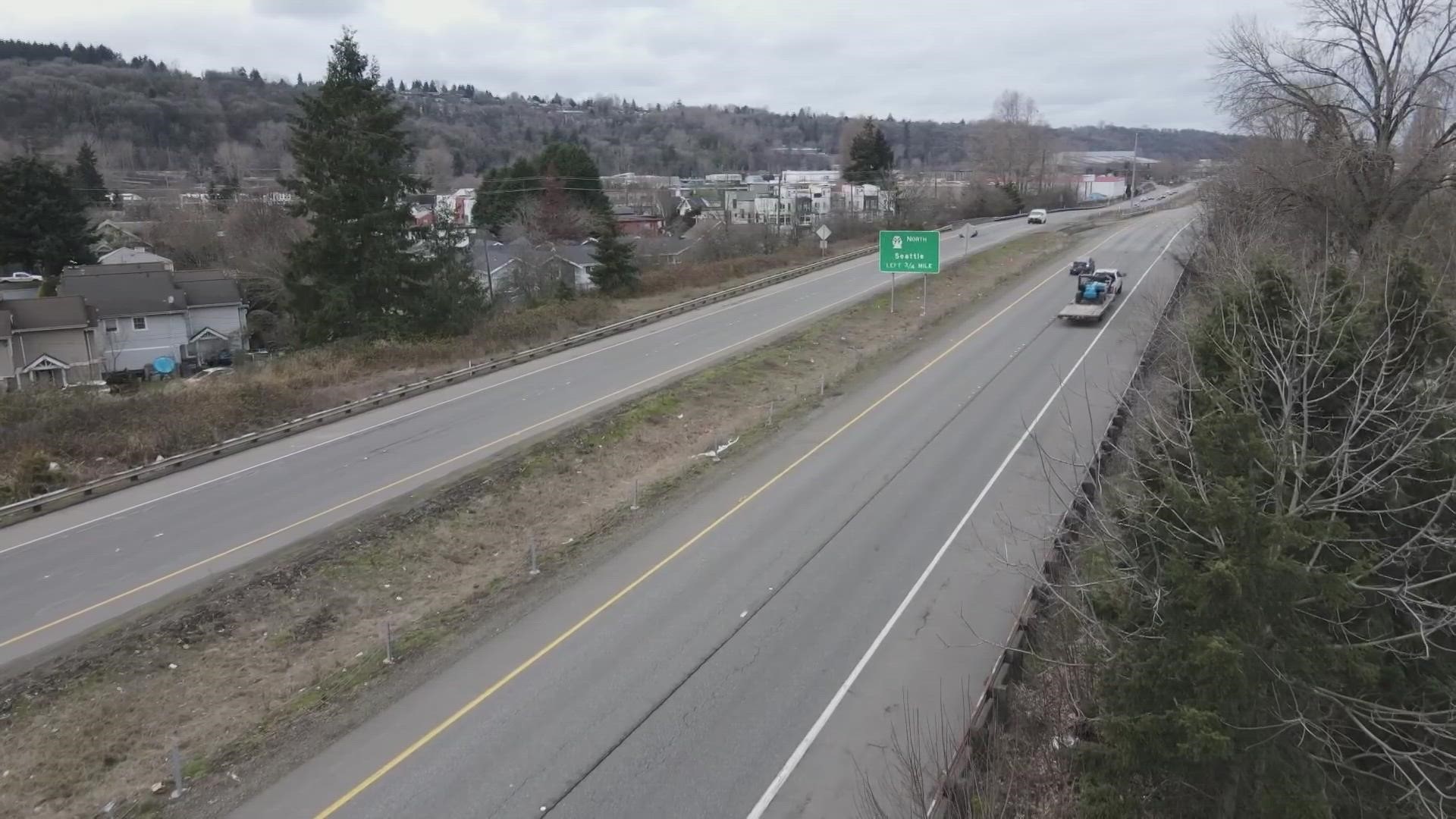SEATTLE — The South Park neighborhood was awarded $1.6 million from the Reconnecting Communities Pilot Program.
U.S. Transportation Secretary Pete Buttigieg announced Tuesday that 45 projects across the country would be receiving money from this $185 million grant.
The proposal for Reconnect South Park is interested in removing a segment of Highway 99 that runs down the middle of South Park. If the segment of the highway was removed, traffic would be diverted away from the residential areas, using roads that already exist.
After 16 years living next to Highway 99 in South Park, Stephanie Jones Gunn said she’s used to her home shaking from the semis and rushing traffic.
“It’s noisy, the pollution is a concern. We talk a lot about our life expectancy being significantly lower than other neighborhoods in Seattle and I can’t help thinking about that often when all the trucks are driving by,” said Jones Gunn.
One of the major health concerns is that there is a library, elementary school, skate park and community center that are right next to the highway.
The South Park neighborhood has often been where immigrants settled after moving to Seattle. The study follows up on community visions and will look at how to best serve those who are most negatively impacted by the current layout of Highway 99.
“The freeway cuts through a community that’s been historically under-invested and now has low opportunities and a high level of displacement,” said Maria Guadalupe Ramirez who is the Project Manager for the Reconnect South Park Coalition.
Removing the segment of Highway 99 would provide 40 free acres of land. A potential plan would be for the land to be used for the things South Park needs the most: affordable housing, local businesses, parks, and overall increased prosperity in the community.
Guadalupe Ramirez said the grant money will allow them to do traffic studies, start an equitable development plan and ensure adequate outreach in the community. Reconnect South Park Coalition is a grassroots organization that worked in tandem with the City of Seattle Strategic Advisors like Cayce James.
“What are the possibilities here, what are people’s biggest concerns with the way things are today and what are the biggest hopes for what they might be in the future,” said James.
The removal of Highway 99 is not a sure thing. The grant from the pilot program will be used to study the possibility of removing part of Highway 99, and multiple other alternatives, including rerouting or restructuring the highway.
“We’ve got a lot of hoops to go through, a lot of channels, government agreements. We’ve got a long process to go through, we have to talk to the community,” Guadalupe Ramirez said.
Residents like Shawna Murphy, who chose not to be on camera, told KING5 the money could be used for more pressing issues.
Meanwhile, Jones Gunn is optimistic about what’s next.
“I’m definitely biased living where I live but I’m open and curious about what other people have to say,” she said.
Guadalupe Ramirez told KING5 they hope to have a vision to present by next year.
The Biden Administration awarded the money as part of its Bipartisan Infrastructure Law. The goal of which is to help reconnect communities that have been divided by infrastructure such as railroads and highways.
The City of Seattle applied for the grant on behalf of the South Park neighborhood. The estimated total cost of the Reconnect South Park study project is $2.836 million.
The study being funded by the grant will take into account strategies to help South Park address heat issues and flooding.
This is the first round of grants which are set to invest $1 billion over the next five years. According to the U.S. Department of Transportation, the Biden administration believes that programs to reconnect communities will help communities of color who have often been disproportionately affected by the physical barriers infrastructure presents.
Any possible construction is not planned to start for at least two years.

